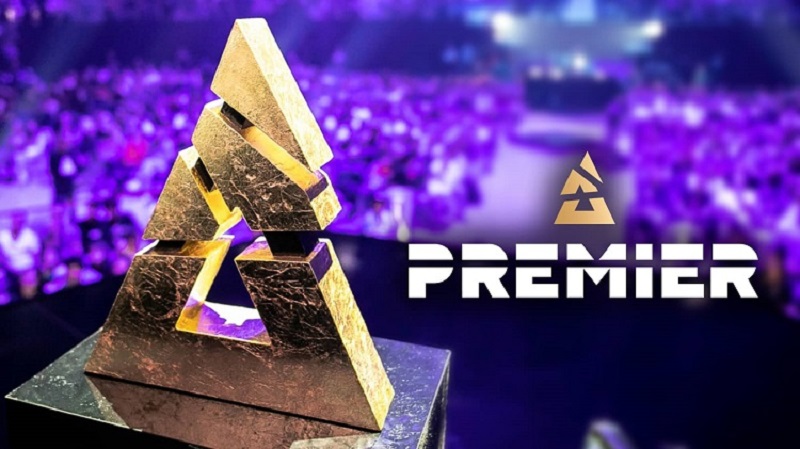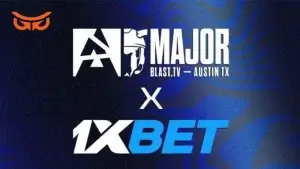Esports has grown in popularity which has led to the emergence of several tournament formats to cater to the diverse range of titles available. As a result, staying informed on the various esports tournament formats can be overwhelming. For this reason, we have compiled all the essential information you need to know about esports tournament formats to help you stay on top of your game. With this knowledge, you can confidently follow and participate in the esports betting scene, knowing that you have all the knowledge you need to succeed.
Esports Tournament Formats: Many Layers
Prior to diving into the various layers of design, we need to understand that esports tournaments are only one facet of the esports industry. The industry is always changing to accommodate what the community wants and what organizers decide.
Esports tournaments are constantly changing, just like the esports industry. These tournaments are so important because teams work to win and earn cash prizes, seeding for future events and qualification points.
Depending on what’s up for stake, the format will change appropriately.

Types of Tournaments
To begin with, there are three types of tournaments to consider, which vary in two ways.
Firstly, tournaments are either hosted offline or online:
- Online: take place over an internet connection, with no live crowd, teams competing remotely or at studio hotspots.
- Offline: either with or without a crowd, all teams are present in one venue to compete under the lights and with a LAN (local area network) environment.
Another means of sorting esports tournament formats is by the means of qualification for such tournaments:
- Open: any competitor may involve themselves in the competition without any requirements, such as payment or qualification.
- Qualification: either closed or open, competitors need to earn their spot in the Main Event by surviving rounds of qualification.
- Invitational: organizers select which competitors will attend the event for whatever reason.
- Franchised: teams earn exclusive rights to compete within a tournament either by purchasing their spot or partnering with the organizers. Franchising in esports is arguably the most modern tournament structure.

Thirdly, we need to discuss what types of competitors are involved in such tournaments. Even within the same game, tournaments vary depending on how competitors may compete:
- Solo/Individuals: as exemplified by StarCraft II, Hearthstone and Fortnite, competitors fight individually to try and climb to the top.
- Teams: ranging from pairs, trios, quads and squads of five, many esports such as CS:GO, LoL and Dota 2 make use of this format, placing an emphasis on teamwork.
With the basics out of the way, let’s dive a little deeper into the inner workings of esports tournaments.
Types of Matches
Regardless of the event, whenever teams or players face one another, this is referred to as a ‘match’, ‘game’ or ‘map’.
In most games, teams will need to win a number of games in a series to gain an overall win.
Most types of games will feature a “best of” format. For example, in a BO7, or best-of-seven, a team needs to win four rounds to win the match. Typically, ‘best-of’ formats range from BO1 to BO9.
In addition, longer games are usually left for high-stake matches such as grand finals of tournaments, while shorter games are preferred to league-style matches.
For example, if you were to bet on VALORANT, an event Grand Final can involve an intense BO7 marathon of a game.

Competition Stages in Esports Tournament Formats
Not Always About Winning: League or Tournament?
An important concept to consider for esports tournaments is that not all events are about winning.
Specifically, tournaments are typically divided into two types depending on what is at stake, and the stage of the competition.
League/Regular Season
The goal here is not necessarily to come in first place. Teams do their best to place in the top four teams in order to seed into deeper stages of the competition where there are higher stakes. They tend to be online and feature shorter matches.
More often, this includes a Group Stage where the competition is divided into groups and only the best move on.
Main Event
This will usually involve only the best teams from the League/Regular season. There are often massive prize pools and offline venues, featuring high stakes and longer matches. For example, if you like to bet on CS2, Major events are the pinnacle of competition.
Regardless of the type of event, there are certain formats that are used more often than others.
Regular Season Formats
GSL: Punishing Losers
Short for ‘Global StarCraft II League’ this format originates from StarCraft II events, where it was first used.
Now extending to other esports, the format features a Group Stage where two opening matches will then determine the remaining matches. These matches are BO1 and the teams will then compete in Winners’ and Elimination Matches.
Two losses result in elimination, though this depends on the type of GSL format. In this format, performing poorly early can put a team in a tough spot.

Round Robin: Fair and Straightforward
Likely the fairest format for esports tournament formats, a round-robin simply involves every team facing one another once only.
With everyone competing against one another, with an equal amount of matches, it provides fantastic insight into how the competition stacks up – great for the early stages. Overall, this standardized approach makes this format quite popular.
In addition, this may extend to double or triple-round robins, relating to how often teams compete with one another.
Swiss Format
Should an organizer fancy spicing things up, the Swiss format is slowly gaining more popularity.
Originating in Switzerland, such a tournament is very strict on sorting out the competition according to their performances.
Unlike the GSL format, competitors here are stuck in their bracket, competing against others with the same number of wins and losses. Exclusively used for Group Stages, they offer a unique approach.
Playoffs and Bracket Play
So, once the early stages of the competition have passed, and the weaker teams have been sorted, Playoff formats help decide who deserves to make it to the next stage of the tournament.
Overall, bracket-play is by far the most popular, as the tournament becomes more competitive as it draws nearer to the Grand Final – the best-case scenario for competitors and the community.

Single-Elimination Bracket
Supported by the likes of LoL, single-elimination brackets are rather brutal for competitors.
Simply put, teams have one lifeline to try and make it to the next stage of the competition. To elaborate, one loss results in elimination, and winning is the only way forward.
If you fancy betting on LoL events, such as Worlds, it’s this format that has punctuated the past few iterations of the event.
Double-Elimination
More commonly, the double-elimination format is considered the best format for this stage of the competition.
Involving two brackets, teams tend to start either in the Upper/Winner bracket or Lower/Loser bracket.
For competitors in the Upper Bracket, a loss results in demotion to the Lower Bracket. Meanwhile, an additional loss in the Lower Bracket ends with elimination. Making it to the Grand Final involves one team surviving the Upper Bracket and one surviving the Lower Bracket.
Offering a balance of duration and excitement, this format is one to consider should you choose to bet on esports such as CoD and Dota.
Triple-Elimination
Although quite rare, triple elimination has recently been tested by the likes of CSGO and mobile esports titles.
Usually preferred for tournaments featuring a massive number of teams, they tend to be too complicated and hence, avoided.

King of the Hill
Bracket Play is not the only option for playoff competitions. At times, typically for more casual events, event organizers use the King of the Hill format.
Here, a ‘Hill’ is defended by one competitor – should the competitor manage to defeat all the other competitors, one is crowned the King of the Hill.
Other Esports Tournament Formats
To conclude, we’ve only mentioned the most essential types of tournaments for the most popular events such as Dota 2 tournaments.
However, the beauty of the esports industry is that there is incredible diversity. For example, other esports types featuring group competition, such as SIMRacing and battle royale tend to switch things up.























